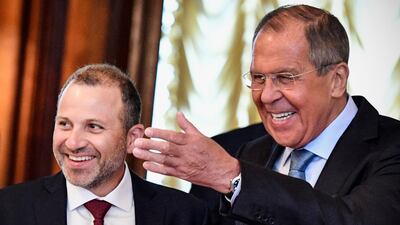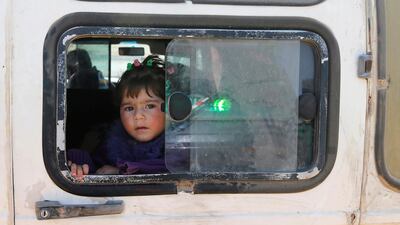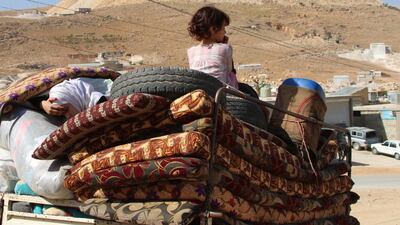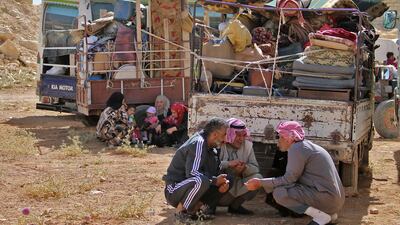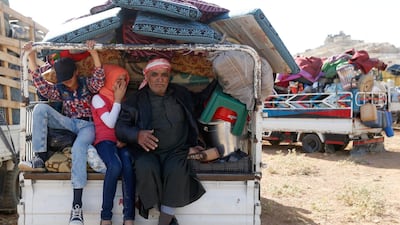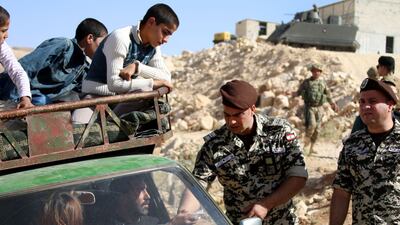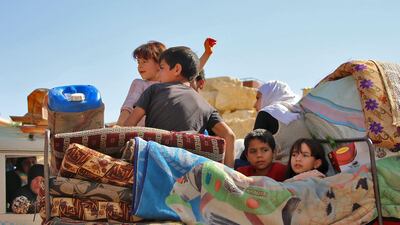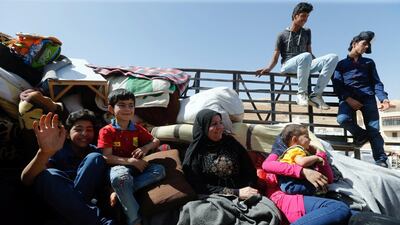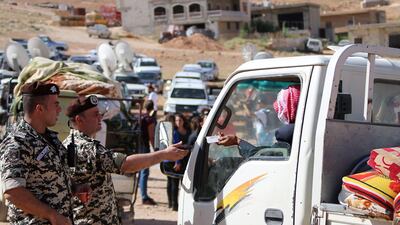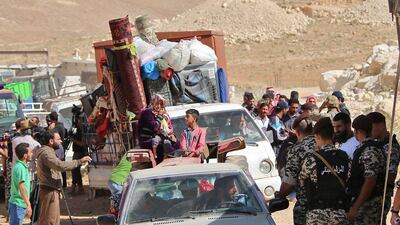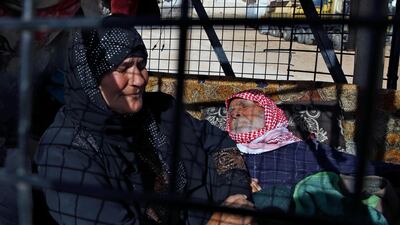Almost three years after Russia entered the Syrian conflict with a brutish air campaign aimed at decimating the opposition and propping up President Bashar Al Assad, a new Kremlin initiative is testing Russian soft power: getting Syrian refugees home.
Lebanon’s Foreign Minister Gebran Bassil on Monday thanked Russia “for putting forward an initiative aimed at resolving the refugee issue” after a meeting with Sergey Lavrov in Moscow.
The two countries have intensified talks in the last few weeks to return of 890,000 registered Syrian refugees living in Lebanon, which officials say is host to some 1.5 million displaced Syrians.
Lebanon wants a “quick, gradual, safe return of displaced Syrians that is in no way linked to a political solution”, said Bassil, echoing Lebanese President Michel Aoun’s position since he was elected late 2016.
According to UNHCR, a little over 2,600 Syrians returned voluntarily to their home country during the first half of 2017. Mr Lavrov, however, said that nearly 7,000 had returned in the last month.
The initiative signals a new chapter in Russia's role in the Syrian war, said Alexey Khlebnikov, an analyst with the Russian International Affairs Council - a think tank linked to the foreign ministry.
“Now that the military conflict is winding down and de-escalation zones are mostly under Syrian government control, Russia wants to focus on a political resolution, humanitarian aid and return of the Syrian refugees.”
“Moscow needs to show the success of its approach to the conflict and to demonstrate positive results,” he added.
However, neither Mr Bassil nor Mr Lavrov gave any details on Monday as to how the thorny issue of returning refugees would unfold.
"Russia is the main player in Syria today and by proxy, its influence is spilling over to neighbouring countries", Nasser Yassin, Director of research at the Issam Fares Institute for Public Policy at the American University of Beirut, told The National. "Lebanese political parties realise this and are reaching out. Gebran Bassil wants to be seen as championing the return of refugees."
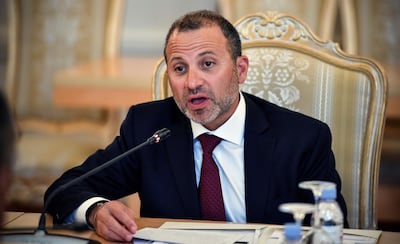
However, the Lebanese government is divided on how to deal with the matter. Mr Bassil’s Free Patriotic Movement and Syria’s Lebanese ally Hezbollah have set up separate committees to encourage the return of Syrians.
Nawar Sahili, a Hezbollah official in charge of the displaced Syrians’ dossier, argues that his group is necessary in light of the absence of an official government initiative. “The day the Lebanese State will play its role effectively, we will be there to help out”, he said.
Up to now, UNHCR has kept clear of the Russian proposal, arguing that the returnees’ safety cannot be guaranteed. Gebran Bassil has lashed out at UNHCR, accusing it of encouraging Syrian refugees to stay in Lebanon and freezing UNHCR’s foreign employees work permits last June.
UNHCR has offered assistance to those who chose to voluntarily return to Syria, but has had limited access to them after their arrival.
______________
Syrian conflict:
Russia to help Lebanon return refugees, says Lavrov
Lebanon and Russia form committee on Syrian refugee repatriation
After painful search, Syrians learn detained relatives are long dead
______________
"It is imperative that UNHCR be granted free and unhindered access to all refugees and returnees to review the conditions of reception and reintegration", Lisa Abou Khaled, UNHCR spokeswoman in Beirut, told The National by email.
“UNHCR is not saying no or yes to the Russian plan”, suggests Mr Yassin. “But it has not received guarantees that the return of refugees will be safe. We heard anecdotes of people being attacked or arrested after their return this year”.
For Mr Yassin, Russia’s initiative is at heart a “fundraising proposal”. Ahead of a meeting with his German Chancellor Angela Merkel at the weekend, Russian President Vladimir Putin called on the European Union to help rebuild Syria so that refugees can return. “But will Europe pay the bill? I’m not sure”, Mr Yassin said.
Western leaders, however, have baulked at Russia’s suggestion that they fork out for the reconstruction – estimated at hundreds of billions of dollars. During Monday’s press briefing, Mr Lavrov lashed out at Washington saying its refusal to take part in reconstruction was an attempt to impede the return of refugees.
"The Kremlin is encouraging Europe to pay for reconstruction in the hopes that the EU will see this as a way of resolving the refugee crisis," Maxim Trudolyubov, Senior Fellow with the Kennan Institute and editor-at-large of the Vedomosti business daily told The National.
“Moscow sees this as an opportunity to improve ties with the EU through countries experiencing pressure from the refugee crisis,” Mr Khlebnikov said, adding that Western money is key to Syrian reconstruction. “It is well understood in Moscow it is impossible to rebuild Syria alone, or even with the help of Iran and China.”
The Russian initiative comes as Putin faces plummeting approval ratings at home over proposals to increase the pension age. With polls showing that Russians are increasingly disgruntled over expensive foreign military interventions eating into domestic spending, the Kremlin is eager to show that its role in the Syrian war is winding down.
Put more bluntly: "Syria is expensive, and Russia's economy is under pressure", Mr Trudolyubov told The National.
